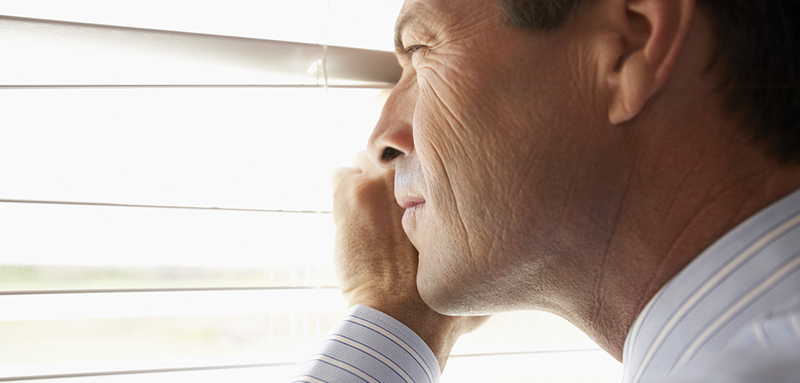What Is an Anxiety Attack?

Feeling anxiety sometimes is normal, but severe anxiety can negatively affect your work and social life. Learn what is an anxiety attack and the symptoms.
Everyone feels anxious from time to time. There are countless examples of everyday causes of anxiety — like running late to an appointment, worrying about passing a test, dreading a dental appointment, or being nervous about giving a speech. These feelings can be unpleasant, but they are simply a normal part of life and short-lived.
However, some people have episodes of anxiety so severe in certain situations their symptoms amount to an anxiety attack.
If you wonder what an anxiety attack is, exactly, consider this tell-tale sign: An anxiety attack is marked by experiencing uncomfortable and severe feelings of anxiety triggered by a specific activity or place. The anxiety-producing trigger can make you dread or even avoid, if you possibly can, being in that situation again.
If you’ve ever experienced stage fright, for example, you’ve had a type of anxiety attack.
YOU MIGHT ALSO LIKE: How to Stop an Anxiety Attack
An anxiety attack is not a panic attack
“There are similarities and differences between anxiety and panic attacks,” Henry Ford Hospital psychiatrist Cathrine Frank, MD, explained in an interview with ABC News. “With an anxiety attack, people may feel fearful, apprehensive, and may feel their heart racing or feel short of breath, but it's very short lived, and when the stressor goes away, so does the anxiety attack. Panic attack on the other hand doesn't come in reaction to a stressor. It's unprovoked and unpredictable.”
Panic attacks include symptoms such as rapid and sometimes irregular heartbeats, feeling you about to die or out of control, sweating trembling or shaking, and experiencing shortness of breath and sensations of choking or smothering, the National Institute of Mental Health (NIMH) explains. A person can be grocery shopping, talking on the phone to a friend, or driving and suddenly have feelings of total panic out of the blue. The experience can result in being constantly fearful another panic attack will strike anytime, anywhere.
Anxiety attacks, on the other hand, are associated with specific situations. For example, if you feel anxious when you must speak in front of a group, you may feel yourself perspiring, your mouth can be dry, and your heart may pound every time you have to talk in front of a crowd.
But, unlike panic attacks, you don’t have anxiety attacks without some known anxiety-causing situation. And what is an anxiety attack for you depends on your personal, specific trigger.
What’s more, when people experience panic attacks, they may believe they are dying and even head to the ER. But if you have an anxiety attack, although it may be extremely uncomfortable, your anxious feelings typically begin to lessen as you move through the situation that made you uncomfortable — like getting halfway through a speech.
What is an anxiety attack caused by?
If anxiety attacks are frequent when you are faced with a trigger, your anxiety attack is likely attributable to one of these types of anxiety disorders: generalized anxiety disorder, social anxiety disorder, or a phobia-related disorder.
People with generalized anxiety disorder may worry about things like their health or their performance at work and then have an anxiety attack when they experience specific triggers such as a doctor appointment or a meeting with their boss.
Social anxiety disorder is marked by having anxiety when you are in a social or performance situation where you fear being negatively evaluated by others or embarrassed, according to the NIMH. Having an anxiety attack in these situations can cause you to avoid social and workplace opportunities.
Phobias, such as a fear of dogs or flying, can cause anxiety attacks that only occur while in the specific situation — like boarding a plane or having a dog approach you.
Bottom line? There is help for anxiety attacks
Once you discover what is an anxiety attack and want to overcome your anxiety problem, talk to your doctor and ask for a referral to a psychologist or psychiatrist who can help.
The American Psychological Association points out there are multiple approaches to successfully treating anxiety disorders linked to anxiety attacks:
- Cognitive behavioral therapy (CBT), a type of psychotherapy, teaches different ways of thinking, behaving, and reacting to anxiety-producing and fearful objects and situations. CBT can also help you learn and practice social skills to keep social anxiety at bay.
- Exposure therapy focuses on confronting fears underlying your anxiety attacks so you can engage in activities you’ve been avoiding — like flying or public speaking — because of anxiety. Exposure therapy may be combined with relaxation exercises, too.
- Medication does not cure anxiety disorders but can help relieve symptoms. The prescription drugs used to treat anxiety include antidepressants, beta-blockers, and benzodiazepines. All these medications have benefits, as well as potential side-effects. Benzodiazepines, for example, can be addictive and should be used for as short a period as possible.
You don’t have to accept having anxiety attacks. Work with your doctor to find the best treatment for your anxiety attack symptoms.
Updated:
April 03, 2020
Reviewed By:
Janet O’Dell, RN